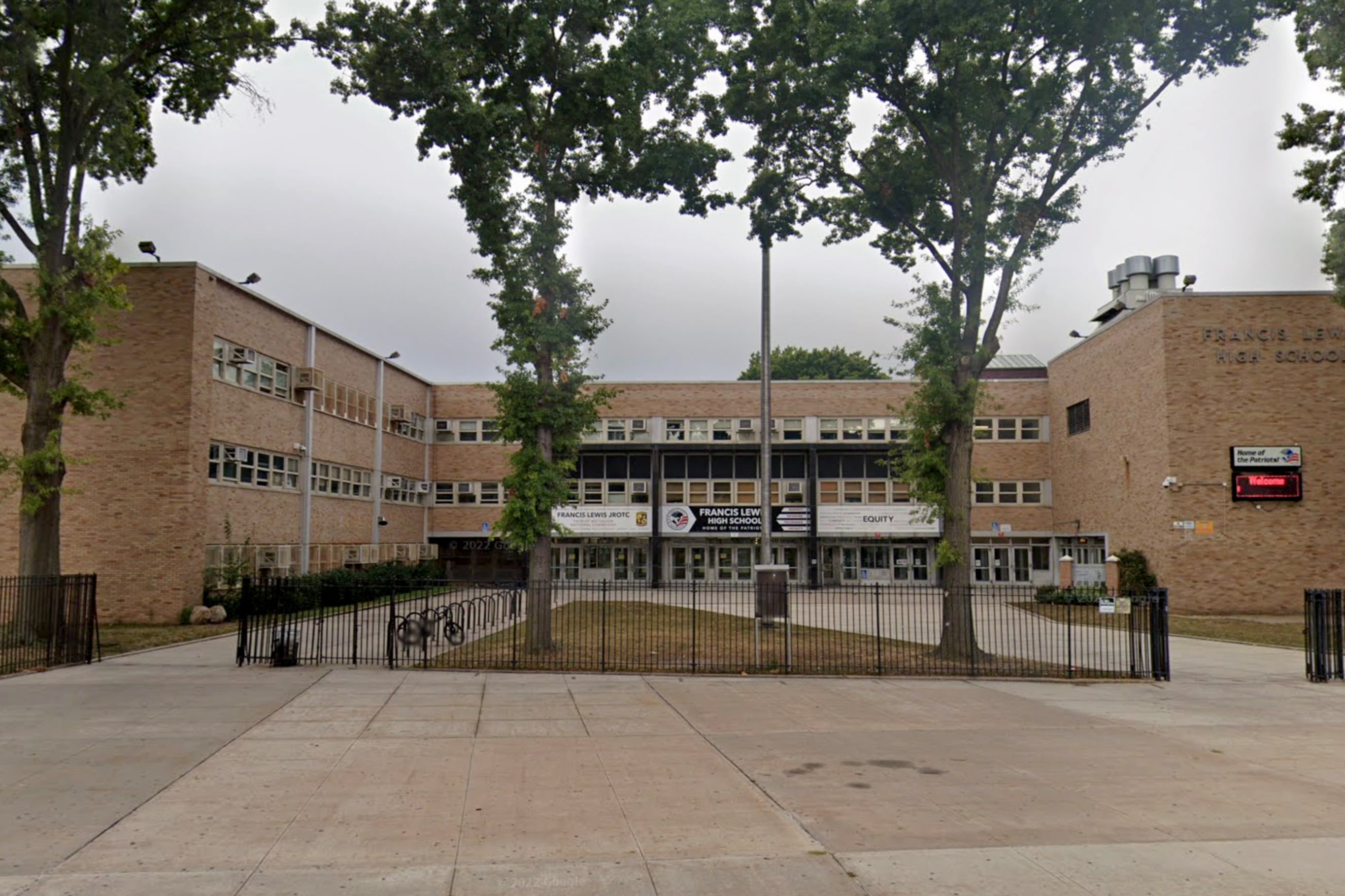Sign up for Chalkbeat New York’s free daily newsletter to keep up with NYC’s public schools.
A New York City principal issued an unusual threat this week: All students who follow anonymous social media accounts connected to the school community could face suspension and lose out on a recommendation letter for college or work.
In a Wednesday letter to more than 4,000 students at Francis Lewis High School in Queens, Principal David Marmor identified the handles of two Instagram accounts he said are posting “horrifying content” including “graphic and direct threats to specific children with bullying comments,” according to a copy obtained by Chalkbeat.
Beginning Sept. 18, “any student still following either of the two sites or any other [similar] ‘confession’ type site, will be disciplined,” he wrote. “This will likely include suspension.”
He added: “The ability to use social media anonymously is the most destructive and dangerous challenge that society has faced, possibly ever, in my opinion.”
The threat of disciplinary action immediately drew fierce criticism from civil rights advocates who say punishing students based on the social media accounts they follow is a violation of their free speech rights.
“It’s unconstitutional in a number of ways,” said Justin Harrison, a senior policy counsel at the New York Civil Liberties Union. “The right to speak anonymously and the right to receive information anonymously — without having to identify yourself to the government — is one of the oldest First Amendment protections there is.”
Plus, there are a number of logistical complications in disciplining students for following specific accounts. It’s unclear how the school could prove the identities of all the students who follow the Instagram accounts and then discipline them in a consistent way, since many students don’t use their real names on Instagram.
Marmor also vowed to cancel a range of “celebratory extracurricular activities” until the accounts are shut down or lose all of their followers, including a senior trip, prom, and an upcoming pep rally. Any students with information about who runs the Instagram accounts will “receive an appropriate award,” the letter notes.
Education department spokesperson Chyann Tull defended Marmor’s threat to suspend students. She noted the department’s policy allows for disciplining students who access or post hateful, discriminatory, harassing, or inflammatory material while on school premises or using school resources, such as WiFi.
“Our school leaders are empowered to take action against matters that threaten [the] wellbeing of the school community, and the principal’s actions are in line with the New York city Public Schools’ Internet Acceptable Use Policy and Discipline Code,” she wrote in an email. “We encourage our students to be upstanders and not bystanders, which includes upholding the values of their school communities.”
Marmor did not respond to an interview request.
One of the Instagram accounts identified in the letter had already been shut down by Friday, and Marmor indicated that the other site had already lost hundreds of followers in a note to school staff.
Chalkbeat reviewed hundreds of posts connected to one of the Instagram accounts Marmor cited. It solicits anonymous comments that are then republished. Many of the posts include musings, gossip, and crushes. “I lowkey miss my ex,” one post reads. “Being special Ed is embarrassing I hate it,” another said. One post links to a petition to change the school’s bell schedule.
Still, many others are sexually explicit, single out specific students, or include racist language. One post declares: “I dont like black people” and is signed with a first name. Another names a student who allegedly had a sexually transmitted infection. A handful of posts mention Marmor in vulgar or offensive ways.
Harrison noted that the school may be within its rights to discipline students who specifically target other students or school officials, though the anonymous nature of the messages makes that challenging.
“I’m not unsympathetic to the principal’s situation here,” he said. “The better responses are positive ones. You can’t threaten your way into a good school climate.”
One student at the school, who spoke on condition of anonymity, said the principal’s reaction seemed extreme given that the Instagram accounts didn’t appear to be causing major disruptions.
“I haven’t heard much about the account at all,” the student said. “I think the big deal he’s making of it actually made it more popular.” Canceling events, the student added, made students angrier with the principal than whomever is behind the Instagram accounts.
The student said it’s not the first time the school has grappled with anonymous social media accounts, noting that school administrators have raised concerns about them in the past.
Shirley Aubin, president of the school’s parent association, said she supports the principal’s crackdown on students who follow the social media accounts.
“He can’t prevent them from following [the accounts] but he can create deterrents,” Aubin said. “It is a reasonable response,” she added. “The reality is there are consequences for your actions.”
Still, Marmor hinted in his letter that some members of the community may perceive the new disciplinary measures as draconian and he invited those with concerns to set up an appointment to speak with him.
“I am aware that the above steps are serious and dramatic,” he wrote. “The problem warrants it; this is a matter of life and death to me.”
Alex Zimmerman is a reporter for Chalkbeat New York, covering NYC public schools. Contact Alex at azimmerman@chalkbeat.org.






